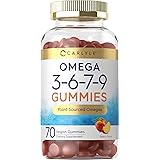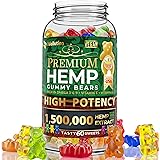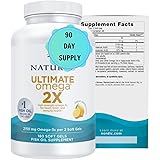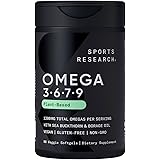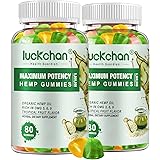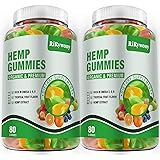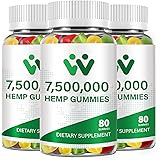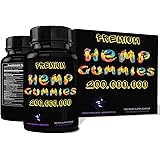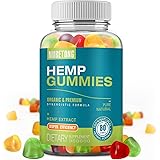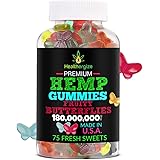The quiet hum of daily life can often be abruptly interrupted by the relentless grip of anxiety. For countless individuals, this isn’t merely a fleeting worry but a pervasive force that significantly impacts their ability to function, connect, and thrive. As shared by Douglas Bloch in the accompanying video, the experience of severe anxiety can be profoundly disabling, often leading to a challenging cycle where anxiety can eventually morph into depression.
Traditional anxiety medications, such as benzodiazepines, have long been a go-to solution for many; however, their known potential for habit formation and dependence presents a considerable dilemma. This inherent risk makes many prescribers hesitant to recommend them for long-term use, leaving a significant void for those seeking sustained relief. Consequently, a growing number of individuals are exploring alternative therapies, with CBD oil emerging as a particularly intriguing option for managing anxiety.
Understanding CBD Oil: A Natural Compound for Well-being
CBD, or cannabidiol, is a natural compound derived from both marijuana and hemp plants. It has garnered substantial attention for its potential therapeutic benefits, largely because it does not produce the “high” typically associated with cannabis use. This crucial distinction stems from its low tetrahydrocannabinol (THC) content, which is the psychoactive component responsible for marijuana’s intoxicating effects.
- Specifically, CBD oil extracted from hemp contains less than 0.3% THC.
- This minimal THC level ensures that users can potentially experience the therapeutic benefits without any psychoactive influence.
- Unlike smoking cannabis, using pure CBD oil does not induce an altered state of mind, making it appealing for those who require mental clarity.
The journey of CBD into national prominence is a compelling narrative, deeply rooted in its remarkable efficacy for a severe condition. In 2013, the story of Charlotte Figi, a young girl from Colorado, captured widespread attention. Charlotte suffered from Dravet syndrome, a rare and debilitating form of epilepsy characterized by frequent and severe seizures. She was experiencing an astonishing 300 grand mal seizures every week, which was significantly impairing her brain development and overall quality of life. Her desperate parents explored every possible treatment, and eventually, they turned to medical marijuana.
Working with a grower in Colorado, where medical marijuana was legal, they found a specific strain rich in CBD and very low in THC. The results were nothing short of miraculous; the seizures dramatically reduced, initially for hours, then for weeks. Today, Charlotte, now 11 years old, experiences only two or three seizures per week, most of which occur during her sleep. This potent CBD-rich strain was subsequently named “Charlotte’s Web,” becoming a symbol of hope and spurring further research into the therapeutic potential of CBD.
Administering CBD Oil: Diverse Forms and Variable Quality
For those considering CBD oil for anxiety, understanding its various forms of administration is essential. CBD can be taken orally and is available in a wide array of products, offering flexibility to suit individual preferences and needs. The most common forms include:
- Tinctures: Liquid extracts typically taken sublingually (under the tongue) for rapid absorption.
- Pills and Capsules: Convenient, pre-dosed options that offer a consistent amount of CBD per serving.
- Chewable Gels and Gummies: A palatable alternative, particularly popular for those who dislike the taste of tinctures.
- Vape Cartridges: Inhaled forms that deliver CBD quickly into the bloodstream, though concerns exist regarding long-term respiratory effects.
- Topical Creams: Applied directly to the skin for localized relief, often used for pain or inflammation rather than systemic anxiety.
- Edible Foods: Such as chocolates, offering a discreet and enjoyable way to consume CBD, though onset time may be longer.
Despite this variety, consumers must exercise diligence when selecting products. The amount and quality of CBD oil can fluctuate significantly between different brands and product types. It is paramount to choose reputable manufacturers that provide third-party lab testing results, ensuring both the stated CBD content and the absence of harmful contaminants.
Addiction Potential: Pure CBD vs. THC-Infused Products
A frequent concern among potential users is whether CBD oil is addictive. Reassuringly, pure CBD derived from hemp does not possess addictive properties. It does not produce a euphoric high or trigger the reward pathways in the brain in the same way that psychoactive substances do.
However, the landscape becomes slightly more nuanced when considering products that contain a combination of CBD and THC. Many formulations available on the market incorporate THC, even in small amounts, because it is understood that THC can potentiate, or increase, the power and effectiveness of CBD oil. Pharmacists in regions like Oregon and Washington have noted that a ratio of nine parts CBD to one part THC can be particularly beneficial for some users, enhancing the overall therapeutic effect.
If you opt for a product containing THC, it is crucial to be aware that even a small percentage might affect you, particularly if you are sensitive to THC or subject to drug testing. Therefore, always verify the precise CBD-to-THC ratio and understand the implications for your personal circumstances. For those seeking strictly non-psychoactive and non-addictive options, focusing solely on pure, hemp-derived CBD oil is the recommended approach.
Beyond Anxiety: Other Potential Applications of CBD Oil
While the focus here is primarily on CBD oil for anxiety, its initial rise to prominence and ongoing research indicate a broader spectrum of potential therapeutic applications. The Charlotte Figi case highlighted its effectiveness in treating Dravet syndrome, a severe form of epilepsy, and scientific investigations continue to explore its anticonvulsant properties. Moreover, anecdotal evidence and preliminary studies suggest CBD may offer relief for a range of other conditions, including:
- Pain Management: Many individuals, including Douglas Bloch’s brother and numerous patients of a nurse he knows in Oregon, report using CBD oil effectively for chronic pain and general discomfort.
- Inflammation: CBD is recognized for its anti-inflammatory properties, which could contribute to its pain-relieving effects and benefit conditions characterized by inflammation.
- Psychosis: Emerging research suggests CBD may have antipsychotic effects, potentially offering a novel therapeutic avenue for conditions like schizophrenia.
- Addiction Recovery: Some studies indicate that CBD could assist individuals in breaking addictions to substances such as cigarettes, heroin, methamphetamine, and cocaine. Its ability to induce relaxation and reduce anxiety may help alleviate withdrawal symptoms and cravings, supporting a more stable, less anxious state during recovery.
It is important to emphasize that while the potential for CBD oil in treating these conditions is promising, definitive scientific conclusions are still evolving. Ongoing research is vital to fully understand the mechanisms of action and establish clear, evidence-based treatment guidelines.
Navigating the Legal Landscape and Obtaining CBD Oil
The legality of obtaining CBD oil can be a complex issue, primarily dependent on its source and THC content. Fortunately, for most people seeking hemp-derived CBD oil without THC, accessibility is quite broad. If the CBD oil is sourced purely from the hemp plant and contains no THC (or less than 0.3%), it is legally available in almost every state across the United States. Only Idaho, Nebraska, and South Dakota have imposed bans on all marijuana-derived products, including those from hemp, making them exceptions to this general rule.
This widespread legality means that hemp-derived CBD oil can often be purchased over the internet or through various retail outlets, offering relative ease of access for the majority of the population. This accessibility is a significant advantage for those seeking relief from anxiety without the psychoactive effects or legal complexities associated with THC.
However, the situation changes for CBD oil products that contain a higher percentage of THC. If a product includes enough THC to be considered a medical marijuana product (even if it’s the 9:1 CBD:THC ratio mentioned earlier for potentiation), its availability is restricted to states where medical marijuana is explicitly legal. These states, while growing in number, are still a minority, severely limiting the options for individuals who believe the synergistic effect of CBD and THC would be more beneficial for their specific needs.
Essential Considerations Before Using CBD Oil for Anxiety
Exploring CBD oil for anxiety represents a proactive step towards managing mental well-being, but it is a decision that should be approached thoughtfully and with professional guidance. While many individuals report effective use, it is not a universally prescribed solution. Before incorporating CBD oil into your regimen, particularly if you are currently taking other medications, consulting with your prescriber or physician is non-negotiable. This is crucial to ensure that CBD oil will not adversely interact with any existing medications or exacerbate underlying health conditions.
Pharmacists often advise their customers that potential interactions can be mitigated by staggering the administration of CBD oil and other drugs. A common recommendation is to wait approximately two to three hours between taking CBD and your other medications. This practice allows each substance to be absorbed and processed independently, potentially reducing the risk of undesirable interactions. Nonetheless, your personal physician remains the ultimate authority on your specific health needs and medication compatibility. Their expertise ensures that any new treatment, including CBD oil for anxiety, is integrated safely and effectively into your overall health plan.
Separating Fact from Fiction: Your CBD Oil for Anxiety Q&A
What is CBD oil?
CBD oil, or cannabidiol, is a natural compound derived from hemp and marijuana plants. It is studied for its potential health benefits and does not produce the ‘high’ associated with cannabis.
Will CBD oil make me high?
Pure CBD oil from hemp contains very little THC (less than 0.3%), which is the psychoactive component of cannabis. This means it will not make you feel high.
Is CBD oil addictive?
Pure CBD oil derived from hemp is generally not considered addictive. It does not produce a euphoric high or trigger the brain’s reward pathways in the same way psychoactive substances do.
How can I take CBD oil?
CBD oil comes in many forms, including tinctures (taken under the tongue), pills, capsules, chewable gels, gummies, vape cartridges, and topical creams.
Should I talk to my doctor before using CBD oil?
Yes, it is important to consult your prescriber or physician before using CBD oil, especially if you are taking other medications. This ensures there are no adverse interactions with your existing treatments or health conditions.


